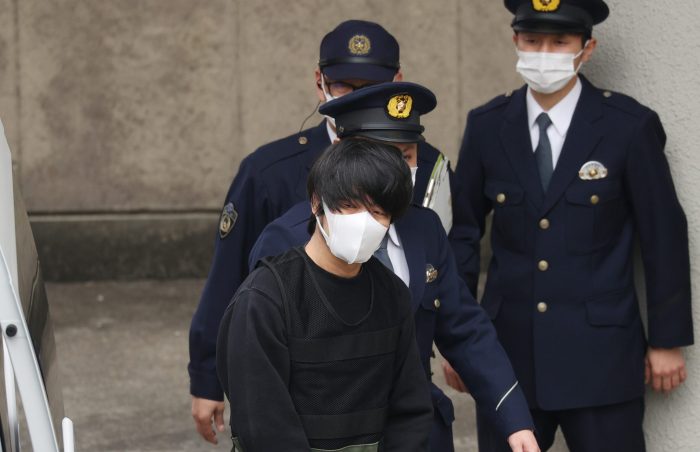Grand Theft Auto IV
Grand Theft Auto IV, released in 2008, is a popular open-world action-adventure game that has garnered both praise and criticism for its mature themes and violent content. While the game is rated M for Mature by the Entertainment Software Rating Board (ESRB), the arrest of a man in Japan for allegedly forcing a nine-year-old to play the game raises serious concerns about the potential impact of such games on young children.
This article explores the content and themes of Grand Theft Auto IV, focusing on elements that could be considered inappropriate for a nine-year-old. It analyzes the potential impact of the game on a child’s development and behavior and compares and contrasts the game’s content with other popular video games, highlighting any potential similarities or differences in terms of age appropriateness.
Content and Themes
The game’s story revolves around Niko Bellic, an immigrant from Eastern Europe who arrives in Liberty City (a fictionalized version of New York City) seeking a better life. However, he quickly becomes entangled in the city’s criminal underworld, engaging in violent acts, drug trafficking, and other illegal activities.
The game features a range of mature content, including:
* Graphic violence: Players are frequently involved in shootouts, car chases, and other violent encounters. The game’s violence is often depicted in a realistic and disturbing manner.
* Strong language: The game features a significant amount of profanity and offensive language, including racial slurs and misogynistic remarks.
* Sexual content: While the game does not explicitly depict sexual activity, it features suggestive dialogue, nudity, and prostitution.
* Drug use: The game depicts the use and trafficking of drugs, including cocaine, heroin, and marijuana.
* Mature themes: The game explores themes of crime, corruption, violence, and the dark side of human nature.
Potential Impact on Child Development
There is a growing body of research exploring the potential impact of video games on children’s development and behavior. While the results of these studies are mixed, some research suggests that exposure to violent video games can:
* Increase aggression: Studies have shown that playing violent video games can increase aggressive thoughts, feelings, and behaviors in children and adolescents.
* Desensitize to violence: Repeated exposure to violence in video games can lead to desensitization, making individuals less likely to be bothered by real-world violence.
* Promote risky behaviors: Some studies have linked playing violent video games to an increased risk of engaging in risky behaviors, such as substance abuse and criminal activity.
* Impair empathy: Violent video games can reduce empathy and compassion for others, as players become accustomed to harming characters in the game.
Comparison with Other Games, Man arrested in japan for allegedly forcing a nine year old to play gta 4
While Grand Theft Auto IV is considered a mature game, it is not unique in its content. Other popular video games, such as Call of Duty, Battlefield, and Fallout, also feature violence, strong language, and mature themes. However, Grand Theft Auto IV’s focus on the criminal underworld and its graphic depiction of violence set it apart from many other games.
The game’s open-world environment, which allows players to explore the city freely and engage in a wide range of activities, including criminal ones, can also be seen as a factor that contributes to its mature nature. This level of freedom and choice is not always present in other video games.
It is important to note that not all children who play violent video games will develop problems. Individual factors, such as age, personality, and family environment, play a role in how a child responds to violent content. However, the potential risks associated with exposure to violent video games should be considered, especially for young children.
Legal and Ethical Implications: Man Arrested In Japan For Allegedly Forcing A Nine Year Old To Play Gta 4
The arrest of a man in Japan for allegedly forcing a nine-year-old child to play Grand Theft Auto IV raises serious concerns about child abuse, exploitation, and the ethical implications of video game content. This case highlights the need for a deeper understanding of Japan’s legal framework surrounding child protection and the potential impact of video games on young minds.
The Legal Framework for Child Protection in Japan
Japan has a comprehensive legal framework in place to protect children from abuse and exploitation. The Juvenile Law (1948) defines children as individuals under the age of 20 and Artikels specific provisions for their protection. The law covers a wide range of issues, including child abuse, neglect, and exploitation. The Child Welfare Law (1947) further strengthens these provisions by outlining the responsibilities of parents, guardians, and society in ensuring the well-being of children.
- The Penal Code: Article 220 of the Japanese Penal Code specifically addresses the crime of “sexual assault of a child.” This law prohibits any sexual acts with a child under the age of 13, regardless of consent. The law also prohibits any sexual acts with a child between the ages of 13 and 18 if the act is considered to be “unlawful.”
- The Child Abuse Prevention Law: This law defines child abuse as any act that causes physical or mental harm to a child, including neglect, exploitation, and sexual abuse. It also requires mandatory reporting of suspected cases of child abuse to the authorities.
- The Internet Safety Law: This law aims to protect children from harmful content online, including pornography and violence. It requires internet service providers to implement measures to prevent children from accessing such content.
Ethical Implications of Forcing a Child to Play Inappropriate Video Games
The ethical implications of forcing a child to play a video game like Grand Theft Auto IV are multifaceted and complex. This case raises questions about the potential for harm to a child’s development and well-being.
- Exposure to Violence and Mature Content: Grand Theft Auto IV is rated “Mature” by the Entertainment Software Rating Board (ESRB) for its graphic violence, strong language, and mature themes. Exposing a young child to such content can potentially desensitize them to violence, normalize criminal behavior, and negatively impact their moral development.
- Impact on Emotional and Cognitive Development: Research suggests that excessive exposure to violent video games can lead to increased aggression, desensitization to violence, and impaired emotional regulation. This is particularly concerning for young children, whose brains are still developing and more susceptible to the effects of violent media.
- Parental Responsibility and Oversight: The case underscores the importance of parental responsibility and oversight when it comes to children’s access to video games and online content. Parents have a duty to ensure that their children are exposed to age-appropriate content and to monitor their online activities.
Impact on the Video Game Industry and Parental Oversight
This case has the potential to impact the video game industry and parental oversight of children’s online activities in several ways.
- Increased Scrutiny of Video Game Content: The case could lead to increased scrutiny of video game content, particularly in relation to age-appropriateness and potential for harm to children. This could result in stricter rating systems, increased parental controls, and greater accountability for game developers.
- Enhanced Awareness of Parental Responsibility: The case may serve as a wake-up call for parents to be more vigilant about their children’s online activities and to ensure that they are exposed to age-appropriate content. This could lead to increased parental involvement in monitoring children’s online gaming habits and implementing appropriate safety measures.
- Collaboration between Industry and Parents: The case highlights the need for collaboration between the video game industry and parents to create a safer and more responsible gaming environment for children. This could involve initiatives such as educational resources for parents, improved parental controls, and more transparent rating systems.
Public Reaction and Media Coverage
The case of the man arrested in Japan for allegedly forcing a nine-year-old to play Grand Theft Auto IV sparked widespread outrage and intense media scrutiny. The incident triggered a public conversation about the potential dangers of video games, particularly for children, and raised questions about parental responsibility and the role of law enforcement in regulating video game content.
Social Media’s Influence on Public Opinion
Social media platforms played a significant role in shaping public opinion and influencing the legal proceedings. The case quickly went viral, with users expressing their shock, anger, and concern on platforms like Twitter, Facebook, and Reddit. The widespread condemnation of the alleged actions fueled public pressure on authorities to investigate the case thoroughly and bring the perpetrator to justice. The case became a trending topic, with many users sharing their own experiences with video games and their concerns about the potential for negative impacts on children.
“This is absolutely horrifying. We need to do more to protect children from this kind of abuse.” – A Twitter user expressing concern.
Media Coverage and its Impact on the Case
The media coverage of the case was extensive, with news outlets around the world reporting on the incident and its implications. The media coverage, while raising awareness about the case, also posed potential challenges to the accused’s right to a fair trial. Sensationalized headlines and graphic descriptions of the alleged events could have prejudiced potential jurors and influenced public perception of the case.
“Man arrested in Japan for forcing child to play violent video game.” – A typical news headline, potentially influencing public opinion.
The media coverage also highlighted the broader issue of video game violence and its impact on children. Some news outlets featured interviews with experts who argued that exposure to violent video games could desensitize children to violence and contribute to aggressive behavior. While the case itself did not directly address the link between video games and violence, the media coverage brought the issue to the forefront of public discourse, prompting further debate and discussion.
Man arrested in japan for allegedly forcing a nine year old to play gta 4 – The case of the man arrested in Japan for allegedly forcing a nine-year-old to play GTA 4 serves as a stark reminder of the importance of protecting children from online risks and inappropriate content. This incident has sparked a crucial conversation about the responsibilities of parents, educators, and society as a whole in safeguarding children’s well-being in the digital age. It highlights the need for open communication, responsible gaming practices, and a collective effort to ensure that children are safe and protected online.
While a man in Japan faces charges for allegedly forcing a nine-year-old to play Grand Theft Auto 4, a completely different kind of news has emerged: Hyundai’s updated Blue Link Android Wear app is finally released! hyundais updated blue link android wear app is finally released Now, drivers can control their car’s features right from their wrist, offering a futuristic experience.
Meanwhile, the alleged incident in Japan raises serious questions about parental responsibility and the impact of video games on children.
 Standi Techno News
Standi Techno News

